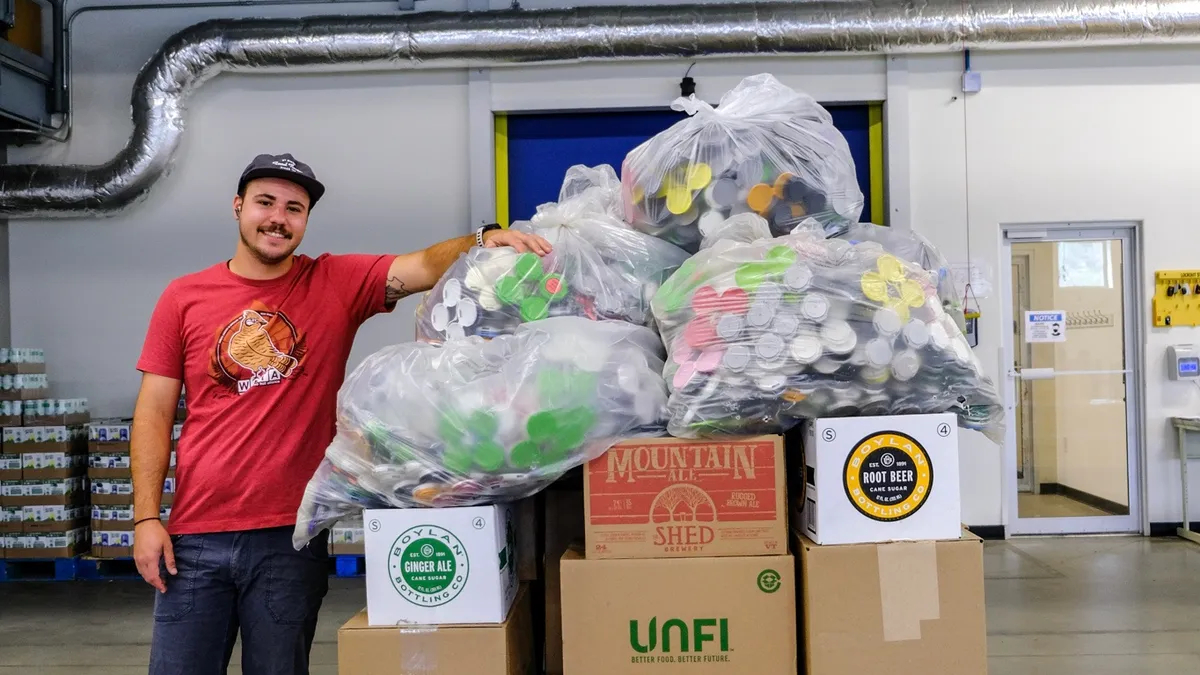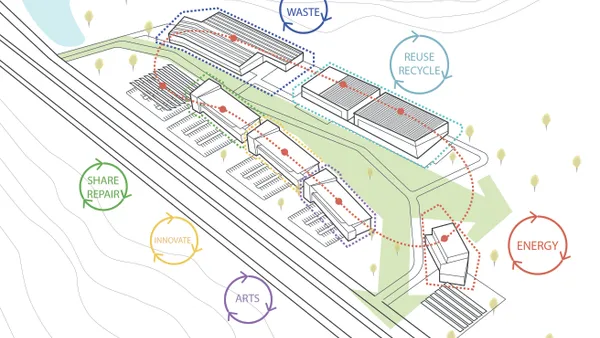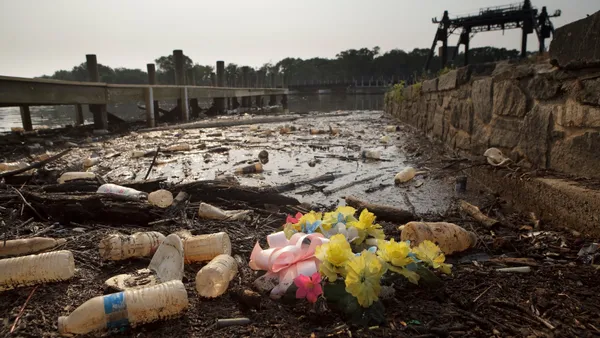Dive Brief:
- Efforts to reuse plastic beer can carriers are taking off. A Vermont system known as the Reusiverse has collected an estimated 75,000 four-pack carriers since launching last year. Co-founder Ben Kogan, CEO of Reusable Solutions, estimates that number will hit 100,000 by the end of the year.
- In California, another 16,000 carriers have been collected this year by Matthew Senesky, founder and CEO of reuse marketplace Iterant. Senesky’s platform seeks to sell the carriers, among other products, back to distributors or manufacturers.
- A related Reusiverse initiative in Massachusetts and Rhode Island, led by EcoFriendlyBeer.com founder Rob Vandenabeele, has collected even larger volumes. Another program, Craft for Climate, is doing similar work in the Chicago area.
Dive Insight:
Scaling up reuse systems can be complex, especially when food-contact packaging is involved. The backers of these efforts believe plastic four- or six-pack can carriers are a prime proof of concept, as they only require a basic wash and sanitizing process before they can be reused and are already in wide circulation.
The most commonly-used carriers are made from 100% recycled content, according to Oregon-based manufacturer PakTech. Technically, the HDPE composition means they could be recycled in curbside streams, but major recyclers in areas such as Massachusetts do not accept them, according to the state’s Recycle Smart website. The company says it also partners with locations for drop-off recycling.
According to Kogan, the product doesn’t travel well through a MRF: Its flat profile may get mistaken for fiber, and the holes make it less maneuverable by air blowers. While this can be frustrating for beer drinkers and brewers, Kogan said it has also created an easy opportunity for reuse.
Unlike efforts to launch reuse systems for takeout containers — something Kogan is familiar with after working for Deliver Zero — the barrier to entry for beer can carrier reuse systems is lower. Normally, he said, “you've had to come up with a design, you'd have to manufacture it, and then you'd have to get everyone to use it."
Each region’s program works differently, and not all collection being done with the Reusiverse model is formally related, but all rely on drop-off bins at breweries or retail stores. In Vermont, Kogan helps facilitate communication within the program’s partner network to move material around among brewers as needed. As bins fill up, distributor Vermont Beer Shepherd collects the material when it delivers shipments of new beer. Iron Heart Mobile Canning could also become a partner.
Kogan said the program is handling around 10,000 carriers per month and helping small breweries “save thousands of dollars each year” on packaging costs.
Any carriers collected in Vermont that aren’t suitable for reuse are ground up to make resin for outdoor sporting equipment or are used in their original form for trail markers by local hiking groups. The carriers are durable enough to be reused tens or even hundreds of times over, according to assessments by those collecting them. Senesky said only about 1.5% of the carriers he’s collected are damaged.
The Reusiverse program is not currently set up to generate revenue; the costs to maintain it are covered by sponsors. Casella Waste Systems was formerly a sponsor, and current backers include Lawson’s Finest Liquids, SunCommon and Mascoma Bank.
In the Bay Area, Senesky’s system is less formal, and he just began collecting earlier this year. So far, an estimated 9,000 carriers have been sold back to brewers through Iterant. His goal is to formalize the sale of reusable packaging — other examples include glass Mason jars and plastic clamshells — in a way that still benefits manufacturers. The concept is to pay packagers a small royalty fee similar to their typical margin. Senesky takes a 3% transaction fee to cover the platform’s costs.
"I'm trying to address the issue of single-use packaging waste at the source, with the manufacturers,” said Senesky. "This is an incentive to really reorient a lot of their business and their strategy around reuse because now it is just as profitable of a business as single-use."
While efforts to reuse some materials are still inherently regional because of the complex logistical factors involved with food packaging, a system for beer can carriers could potentially be easier to scale. Kogan thinks the concept is an example of how reuse could be done nationally and doesn’t need to wait for policy drivers. A larger scale could also address one factor that can limit the pace of redistribution: sorting and amassing sufficient quantities of certain colored carriers.
“At the right scale, and with the right operational efficiencies, the collection and resale of those can carriers can be a profitable business,” said Senesky.















